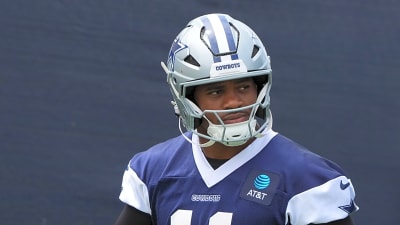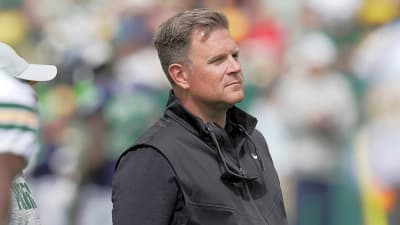
Manchester United supporters woke up to a surreal football soap opera on August 29 2025. Two former United managers lost their jobs in Turkey within hours of each other. Ole Gunnar Solskjaer was sacked by Besiktas after a painful European exit. José Mourinho left Fenerbahçe following a Champions League playoff defeat.
Those events sent betting markets and social feeds into overdrive with one recurring question. Could Solskjaer return to Old Trafford if Ruben Amorim continues to struggle? This article sorts the headlines from the real chances and explains why a Solskjaer comeback would be emotionally satisfying yet practically complicated.
What Happened in Turkey and Why it Matters to United Fans
The avalanche of managerial churn in Turkish football matters to Manchester United because it places two high-profile names squarely back on the market. Solskjaer’s dismissal came immediately after Besiktas were knocked out of European competition.
His tenure had moments of optimism, but ultimately collapsed with the same fate as Ole’s. Mourinho’s exit at Fenerbahçe arrived after an equally brutal elimination that left the club and its fans furious. The double headlines are rare yet potent. They revive the debate about whether Manchester United should ever look backwards for stability or push on with a fresh identity under Amorim.
Why a Solskjaer Return Would Make Sense Emotionally and Politically
Solskjaer is still beloved by a large chunk of the Manchester United base. He embodies a club identity many supporters miss. The narrative is straightforward. Solskjaer was a player-turned-manager who once steadied the ship and delivered memorable wins. That emotional currency buys trust from fans and some players.
If Amorim’s results deteriorate in a public way, the board could face enormous pressure to act. Reappointing a figure with instant goodwill seems like a low-friction fix. Bookmakers reacted fast to the Turkish sackings and trimmed odds on familiar names returning to big jobs. That reaction signals how much quick narratives influence decision-making in football.
Tactical and Structural Reasons Why the Boycott of History Matters
Solskjaer’s strengths lie in man management and restoring confidence. He earned praise for steadying a top job during difficult periods by simplifying the message and giving young players chances. United now sits at a crossroads where tactical clarity and a coherent long-term plan are arguably more important than short-term emotional relief.
Amorim offers a distinct footballing blueprint that the club invested in through transfers and a broader recruitment approach. However, with just four Premier League wins in almost 28 games, and failing even to win back-to-back matches, it has raised lots of questions about the Portuguese.
Reverting to a man who symbolizes a previous era risks undoing those structural moves. Chief executive and sporting directors rarely want to invite another public reset because continuity, however imperfect, often protects multi year projects. The financial and reputational cost of hiring then firing familiar faces again would be significant.
Could Solskjaer Actually be Hired, and What Would That Look Like
A reunion would require more than fan chants. Manchester United’s hierarchy would weigh multiple variables. Contractual details matter because Solskjaer is now a free agent.
The board would assess whether his coaching staff, tactical staff, and player relationships align with what the club wants next. United would also run scenario planning against other available candidates, including established veterans and innovative young managers. A short-term rescue mission usually costs heavily in the transfer market later on.
The club must decide whether immediate results trump a coherent plan. Practicalities aside, Solskjaer himself has repeatedly given mixed signals about chasing high-pressure jobs. He made comments in the past that suggested a willingness to return if asked, but that willingness matters less than the structural fit.
The Amorim Factor and Why Impatience Can Be Dangerous
Ruben Amorim arrived with a reputation for building disciplined teams. United insiders stress there are no current plans to sack him. Internal anxiety sits alongside public criticism.
Players and staff sometimes express confusion about tactical switches and selection policies. Those murmurs grow louder when results do not follow. The club has started the season with no wins in three games, including getting knocked out by a fourth-tier club, Grimsby. With a managerial record now as bad as Garry Neville‘s Valencia, despite decent recruitment, fate could be decided sooner than later.
Sacking Amorim would trigger a heavy compensation package for United due to the length and terms of his contract. The club must also consider the message it sends to prospective managers and to the marketplace. Football boards that shift frequently undermine the stability that attracts the top tactical minds, United say they want. A cautious approach remains the safest route to protect long-term ambitions.
Final Thoughts
A Solskjaer return would satisfy a large part of the fanbase and create headlines that soothe immediate pain. History, sentiment, and short-term optics all favor a reunion in the event Amorim falls. Reality demands a more solemn calculus. United’s project requires coherence in recruitment planning, tactical identity, and long-term financial prudence.
The best long-term decision will probably frustrate some fans but protect the club from repeated cycles of hope and disappointment. Expect sharp media narratives. Rumour mills will accelerate whenever United drop another point. The international break looms as a likely drama window. Club statements will be minimal and cautious until a clear direction crystallizes.
If results stay poor and the board senses the dressing room fracturing then a managerial change becomes plausible. That path will produce candidate lists, odds shifts, pundit debates and social storms. Every United supporter should remember one truth.
Manchester United play Burnley before the international break, and it could be a make-or-break for a long-term decision.
More must-reads:
- Alexander Isak exit on the table as Newcastle make record signing
- Winners, losers and oddities from the 2025-26 Champions League draw
- The 'Most 1,000-rushing yard NFL seasons' quiz
Customize Your Newsletter
 +
+
Get the latest news and rumors, customized to your favorite sports and teams. Emailed daily. Always free!








